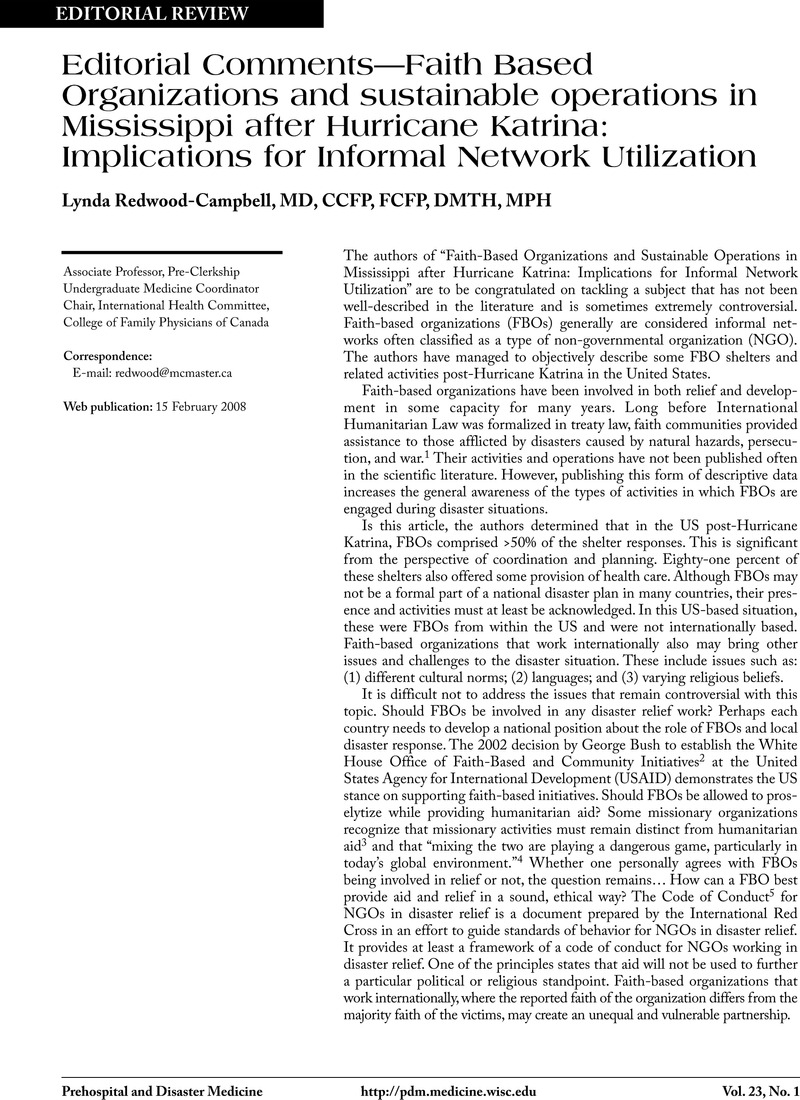Crossref Citations
This article has been cited by the following publications. This list is generated based on data provided by Crossref.
Khan, Sultan
2011.
Comparative Emergency Management.
p.
175.
Rassekh, Bahie Mary
and
Santosham, Mathuram
2014.
Utilization of formal health services for children aged 1–5 in Aceh after the 2004 tsunami: Which children did not receive the health care they needed? Implications for other natural disaster relief efforts.
Health Psychology and Behavioral Medicine,
Vol. 2,
Issue. 1,
p.
111.



